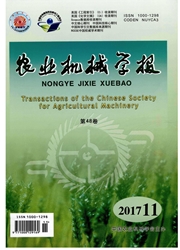

 中文摘要:
中文摘要:
生物油是生物质通过热解获得的液体产物,因其可替代传统化石燃料而具有广阔的应用前景。因粗制的生物油存在热值低、氧含量高、粘度大等不足,通过添加乳化剂和醇,同时结合超声波技术对油茶壳热解生物油进行提质改性研究。分别从超声波功率、超声波作用时间、添加醇的种类和含量等方面对生物油及其重质组分乳化提质开展研究。结果表明:加入醇类物质并结合超声波技术能有效降低生物油粘度,并提高其稳定性和热值。乳化液粘度随超声波作用时间延长或超声波的功率增加均呈现先升高后降低再升高的趋势。乳化助剂的添加在醇添加量较低的情况下,可有效增加乳化液的稳定性。重质油与醇乳化后的乳化液稳定性好,乳化液的热解曲线明显向低温区偏移。甲醇与生物油以3∶1进行乳化后,生物油粘度由32.47 mm^2/s下降到1.73 mm^2/s,热值由15.21 MJ/kg提高到19.43 MJ/kg,pH值由2.7提高到4.5,整体性质改善明显。
 英文摘要:
英文摘要:
Bio-oil which derivates from fast pyrolysis of biomass is a promising product for replacing the traditional fossil oil. Bio-oil with high oxygen, high viscosity, strong acid, low heat value and poor thermal stability is not beneficial to the industry application. Therefore, it is necessary to improve the quality of bio-oil. The technology of ultrasonic emulsification and additives was used to improve the stability and decrease the oxygen content. The influence of ultrasonic power, ultrasonic time, the kinds of alcohol and the ratio of alcohol on the improvement of bio-oil quality was investigated. The result showed that the stability and heat value can be effectively improved when adding alcohol or using ultrasonic emulsification appropriately. With the increase of ultrasonic time or the ultrasonic power, the viscosity was increased first and then increased after a decreasing. When the content of alcohol was not enough, the addition of emulsification auxiliaries could improve the stability of the emulsification liquid effectively. Heavy oil combined with alcohol showed a better stability, and the TG curve was significantly shifted to lower temperature zone. The results of TG curve of emulsified heavy oil and alcohol showed that methanol and ethanol were more conducive to the heavy oil in polymer or oligomer ester alcoholysis. When the ratio of additional methanol to bio-oil was 3: 1, the viscosity was decreased from 32.47 mm^2/s to 1.73 mm^2/s and calorific value was increased from 15.21 MJ/kg to 19.43 MJ/kg, the quality of the emulsified oil was improved significantly. With the increase of carbon chain, the caloric value of bio-oil was increased gradually. And there was no obvious delamination in the mixture and the viscosity was decreased. The ultrasonic time and ultrasonic power had significant influence on the physicochemical properties of the emulsion, when n-butanol and heavy oil were mixed by 1: 1, the viscosity of heavy oil emulsion was effectively reduced after ultrasonic treatment for 10 min under 1
 同期刊论文项目
同期刊论文项目
 同项目期刊论文
同项目期刊论文
 期刊信息
期刊信息
